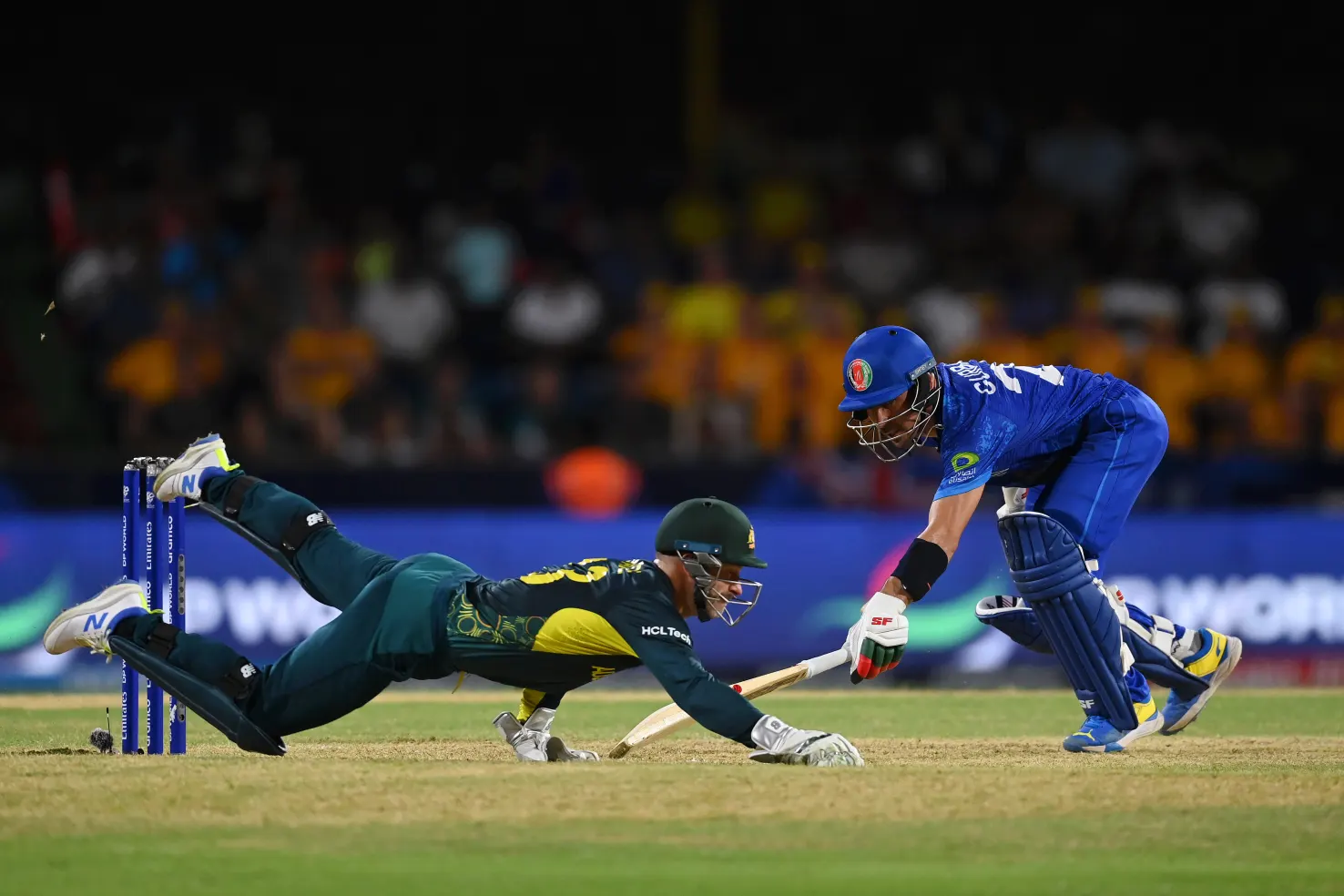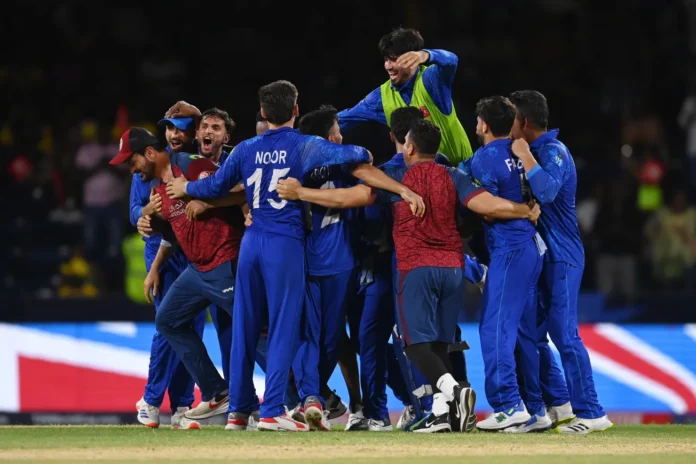Australia’s Twenty20 World Cup hopes were seriously threatened after a surprising first-ever loss to Afghanistan. Shortly after the match, a magnitude 6.2 earthquake struck near Trinidad, symbolically reflecting the seismic shift in cricket.
Afghanistan’s Historic Victory
Afghanistan’s victory over Australia at the Arnos Vale Ground in St. Vincent was a game-changer. This win not only jeopardized Australia’s chances of reaching the semi-finals but also proved Afghanistan as a significant force in world cricket, despite the challenges they face due to sanctions against their leadership.

Australia’s Struggles and Rashid Khan’s Question
Australia, usually strong in their campaign to hold all ICC trophies, faced a critical blow. Their refusal to play Afghanistan in bilateral matches due to political reasons came into question. Rashid Khan, after the game, expressed his thoughts:
“If we play in a World Cup, why don’t we play in bilateral series? We are happy to play against the best sides; we learn from them and get better day by day.”
Glenn Maxwell’s Efforts Fall Short
At one point, it seemed Glenn Maxwell might save Australia, much like he did in the previous year’s ODI World Cup. However, his dismissal opened the door for Afghanistan to secure their win. Rashid Khan shared his relief:
“I can sleep better now. That was a night which didn’t let me sleep. The game kept coming into my mind. Maxi took the game away from us last year, but tonight, because of the happiness, I won’t be able to sleep.”
Crucial Matchups Ahead
Afghanistan now has the upper hand, playing Bangladesh after Australia faces India. Knowing what they need to do to progress, Afghanistan can strategize accordingly. Mitchell Marsh’s team must win and hope to stay ahead on run rate.
Debatable Decisions and Fielding Errors
The choice to leave out Mitchell Starc for Ashton Agar, expecting a turning pitch, will be debated. Australia’s decision to chase after winning the toss also raised questions. Although Agar bowled well, Australia’s fielding was poor, allowing Afghanistan to score 20 runs too many.
Australia’s Poor Fielding Performance
Australia’s sketchy fielding, similar to their performance against Scotland, made the chase tougher. Despite Maxwell’s efforts, the team lost 5 wickets for 21 runs, falling short of the target. No other batter besides Maxwell scored more than 12 runs.
Afghanistan’s Strong Defense
Afghanistan’s bowler Gulbadin Naib took crucial wickets, helping Rashid Khan defend a target of 149. Despite some dropped catches by Adam Zampa and Marcus Stoinis, Afghanistan maintained their lead with brilliant catches and strong fielding.
Pat Cummins’ Hat-trick
Pat Cummins matched Wasim Akram’s record by taking a second hat-trick in successive matches. However, Australia’s overall fielding was poor, with Warner dropping a crucial catch.
Afghanistan’s Efficiency and Future Prospects
Afghanistan held all their catches, boasting a 70% catching efficiency, the best in the tournament. Australia, on the other hand, had the worst catching efficiency. Rashid Khan highlighted the importance of fielding in T20 cricket, emphasizing the lack of room for error in such a fast-paced game.


